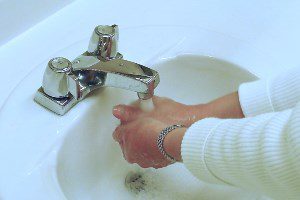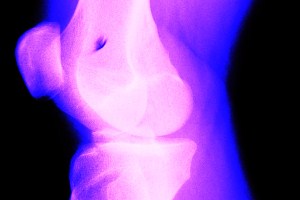To Stay Healthy this Fall and Winter? Wash Your Hands! The Simplest Way
 As summer turns to fall, lots of people (children and adults alike) will be spending more time inside and in closer proximity to one-another. Washing your hands is something simple we can all do to keep our schools, workplaces and homes just a little bit healthier. In fact, it’s actually been identified by the US Centers for Disease Control and Prevention (CDC) as the single most effective way to prevent the spread of communicable diseases.
As summer turns to fall, lots of people (children and adults alike) will be spending more time inside and in closer proximity to one-another. Washing your hands is something simple we can all do to keep our schools, workplaces and homes just a little bit healthier. In fact, it’s actually been identified by the US Centers for Disease Control and Prevention (CDC) as the single most effective way to prevent the spread of communicable diseases.
But researchers at Michigan State University recently found that only about 1 person in 20 actually washes his or her hands properly in even the most obvious hand washing scenario—after using a public restroom. According to a summary by writer Lindsay Abrams of the Atlantic:
“Of 3,749 people observed leaving the bathrooms, 66.9 percent used soap, while 10.3 percent didn’t wash their hands at all. The other 23 percent of people stopped at wetting their hands, in what the researchers, for some reason, call “attempted washing” (as if maybe those people just weren’t sure how to follow through). Although the researchers generously counted the combined time spent washing, rubbing, and rinsing, only 5.3 percent of people spent 15 seconds or longer doing so, thus fulfilling the requirements of proper handwashing. They average time spent was 6 seconds.
Why Hand Washing?
Bacterial and viral infections can be spread when the hands come into contact with infectious respiratory secretions and carry them elsewhere. This happens most often as a result of someone coughing, sneezing, shaking hands, or touching an object that has been in the proximity of a sick person and then touching the face—particularly the nose, mouth or eyes. This is one of the primary ways of transmitting the virus that causes the common cold.
Washing your hands after using the toilet or changing a diaper is of utmost importance, as the ingestion of even the smallest amount of fecal matter can cause serious illness from deadly pathogens such as E. coli, salmonella, giardiasis and hepatitis A, among others. You should also be particularly careful about washing your hands after touching garbage, handling animals or animal waste, visiting or caring for an ill person, or if your hands show visible dirt.
Those who handle food should routinely wash their hands, not only after using the toilet, but also after touching raw meat, fish or poultry, since the microbes present on uncooked food can cause gastrointestinal infections ranging from mild to severe or even life-threatening.
Perhaps those with the greatest need to wash their hands on a regular basis are healthcare workers. Because they’re constantly exposed to sick patients and patients with weakened immune systems, and since they frequently come into contact with contaminated surfaces, these professionals have a special responsibility. Before the importance of hand washing was widely understood within the healthcare community, millions of people became sick or died from infections passed along on the hands of their caregivers. During the 19th century, up to 25% of women died in childbirth from childbed fever (puerperal sepsis), a disease subsequently found to be caused by the bacteria Streptococcus pyogenes. After hand washing was introduced as a standard practice in the delivery room, the rate of death dropped to less than 1%.
It All Begins With Hand Awareness
Here are the “4 Principles of Hand Awareness”:
- Wash your hands when they are dirty and BEFORE eating
- DO NOT cough into your hands
- DO NOT sneeze into your hands
- Above all, DO NOT put your fingers into your eyes, nose or mouth
How to Wash Your Hands the Right Way
To wash your hands properly, you need only two things: soap and clean, running water. If these two things are not available, you can use an alcohol-based hand sanitizer that has a minimum 60% alcohol content.
Before washing your hands, remove all rings and other jewelry. Using running water, wet your hands thoroughly, then apply enough soap to work up a nice lather. Keeping your hands out of the water, rub them together, being sure to scrub both the front and backs of your hands, including your wrists, and also washing between the fingers and under the nails. Do this for 20 seconds, then rinse completely under the running water. Be sure to turn off the taps with a paper towel rather than your bare hand. According to the CDC, the whole process should take about as much time as singing “Happy Birthday” twice.
But What About Drying?
The Mayo Clinic recently published its own comprehensive review and analysis of every known hand washing-related study produced since 1970. Interestingly, their researchers found that drying hands was a key part of preventing the spread of bacteria. They also concluded that paper towels are better than blowers for this purpose. Here’s some of their reasoning:
- Most people prefer paper towels to blowers, so they’re more likely to use them.
- Blowers take too long, encouraging people to wipe their newly-cleaned hands on dirty pants or to skip the step altogether.
- It takes less energy to manufacture a paper towel than it does to dry hands with a blower.
- Blowers dry out the skin on your hands.
- Blowers scatter bacteria three to six feet from the device.
As chiropractic physicians, we have a special interest in helping our patients (and non-patients, for that matter) avoid illness and injury. This means helping them develop healthy lifestyle habits—like regular hand washing—that prevent disease. We also work closely with them in areas like diet, exercise, sleep and stress management. If you’d like to learn more about what we can do to help you stay healthy and live your life to its fullest, please call or visit our office today!
